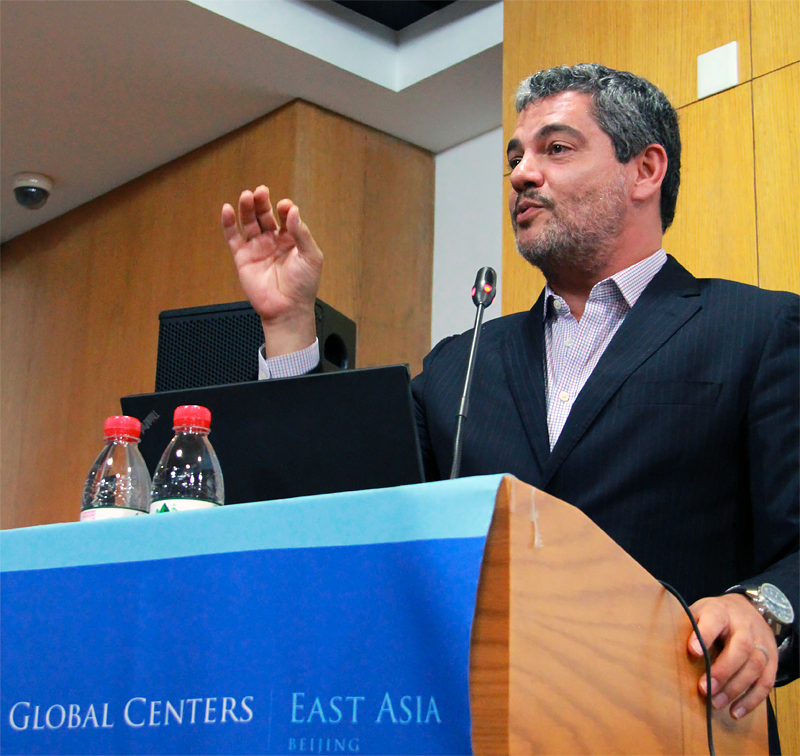Columbia Global Centers | Beijing hosted a discussion on the economic prospects of Latin America and the bilateral implications for China-Latin America relations at an August 29 event that featured two Columbia professors.
Professor José Antonio Ocampo discussed the macroeconomic situation in Latin America over the past decades with an emphasis on China’s role in Latin America’s economic boom. Ocampo is co-president of the Initiative for Policy Dialogue at Columbia University and director of the Economic and Political Development Concentration in the School of International and Public Affairs.
Ocampo, pictured at left, began his remarks by saying that Latin America experienced a significant debt crisis in the 1980s, and the post-debt crisis has been a period when there is increasing integration into the global economy.
“Though there are stronger business cycles than in the past and a few success stories, the growth has been disappointing” he said, “Latin America still had a loss of share in the global economy, and de-industrialization has led to greater commodity dependence in the 2000s.”
Ocampo emphasized that the boom was closely linked to China since it became a major Latin American trading partner in the 2000s. However, he pointed out that “the major issue has been the strong dependence on commodities, which has generated imbalanced trade relations between Latin America and China.”
He added that “the major issue going forward is that the end of the commodity boom implies that the China-Latin American trade pattern has to change, China can play an essential role in manufacture and infrastructure investment in Latin America.”
Marcos Troyjo, co-founder of and co-director of BRICLab at Columbia University, said that “we are now in a bizarre period and are transitioning from deep globalization to deglobalization, when countries are more focused on local content, which we called local-contentism.” He is pictured below right.
“China begins to depart from its previous export-led growth model and become more dependent on domestic consumption and less dependent on exports, which is similar to the model adopted in Latin America,” Troyjo said. “But the China – Latin America relation is not playing out since China is stepping into China 2.0, when its FDI goes to countries where China can find alternative cheap labors, access to minerals and agricultural commodities, and can play a significant role in provision of local infrastructures.”
Troyjo further predicted that “Latin America will be a good platform for China in the reglobalization process, especially those countries like Mexico, Chile, and Peru, who are part of the new trade geometry.”
Reglobalization will belong to those countries that create business-friendly ecosystems, well established and transparent market rules, and steadfast connections to transnational economic networks. He concluded that “the big decision here is whether Latin American countries will revolutionize, moving away from dependence on commodities and become more technical-intensive, it is only up to Latin America itself.”
(Contributed by Shenli Cai, Edited by Joan Kaufman)
